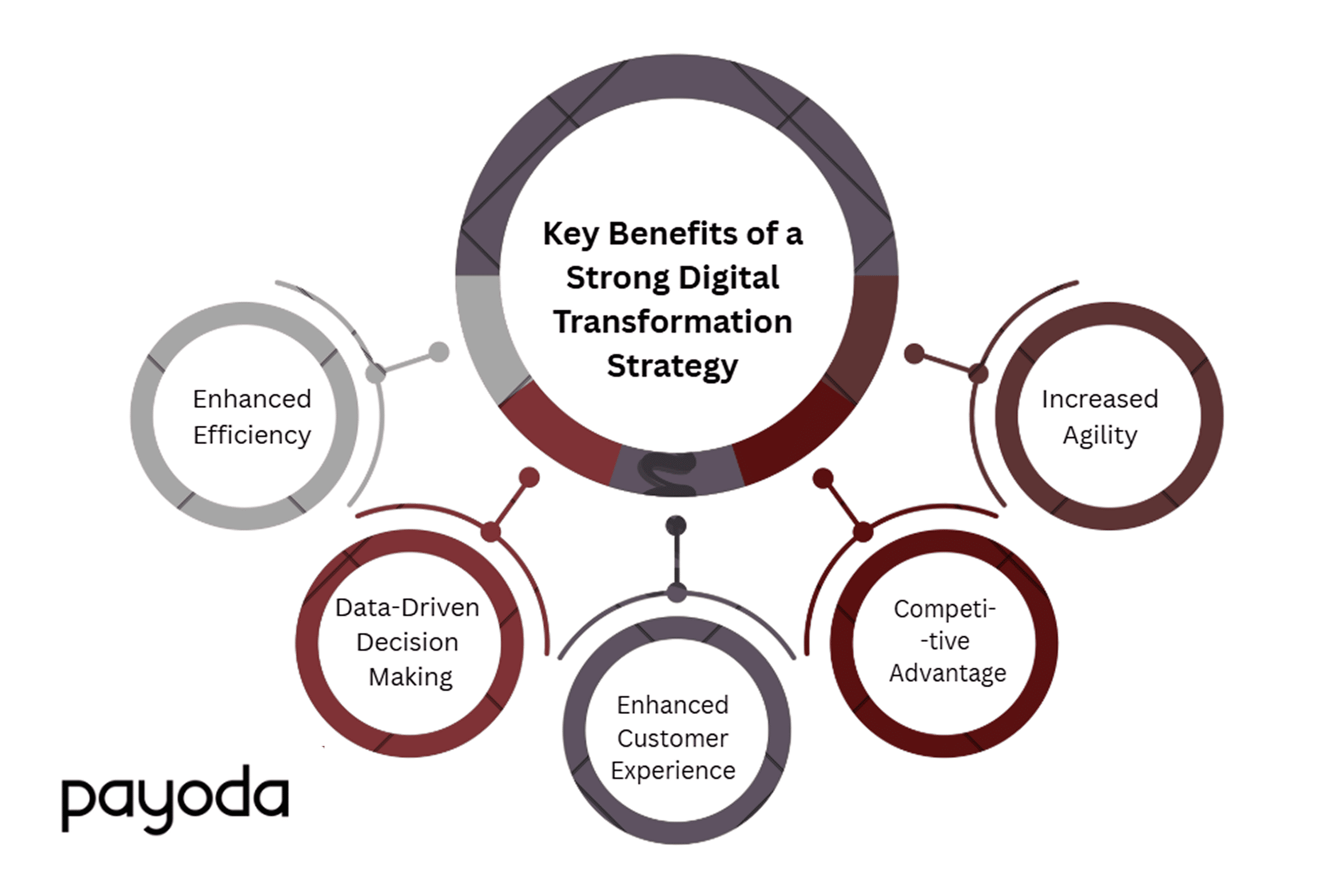
With growing advancements in AI, automation, cloud, and data analytics, it has become impossible for a business in 2025 to ignore digital strategy and transformation. Organizations have to adapt or risk becoming obsolete in a world in which the pace of change is becoming terrifying with every passing day. A well-defined business transformation strategy enables organizations to streamline operations, enhance customer experiences, and drive innovation.
This blog will carry you through the process of building that winning digital transformation strategy with clear plans of digital roadmaps that guarantee success in the long run.
Understanding Digital Transformation
What is Digital Transformation?
Digital transformation is the integration of digital technology into all areas of the business to drive higher operational efficiency, increased customer engagement, and enhanced competitiveness. Successful strategy transformation drives companies to rethink business models, aligning technology to business goals.
Why is Digital Transformation Important in 2025?
- Heightened competition: Companies embracing a digital strategy would be at a significant advantage.
- Customer expectations: Customers of today will never settle for clumsy digital experiences.
- Technological advancements: AI, IoT, and cloud solutions are unveiling an entirely new order for industries.
- Operational efficiency: Digital operations and automation increase productivity while lowering costs.
Key Benefits of a Strong Digital Transformation Strategy

An effective business transformation strategy delivers several advantages:
Enhanced Efficiency: Automating processes reduces manual errors and improves throughput.
Enhanced Customer Experience: Digital tools provide personalized interactions and increased satisfaction.
Increased Agility: A clear transformation roadmap allows businesses to react quickly.
Data-Driven Decision-Making: Insights from analytics facilitate better strategy formulation.
Competitive Advantage: Strategically able companies will always lead over competitors.
Steps to Build a Winning Digital Transformation Strategy
Businesses should have a structured digital roadmap for a smooth transition. Here’s how to build one:
1. Define Strategy Goals
Identify specific objectives for your digital strategy and transformation, like improving operational efficiencies, enhancing customer experiences, or increasing revenue generation.
2. Assess Current Digital Maturity
Analyze the existing systems, processes, and technology gaps. The analytical understanding of your digital maturity will facilitate formulating an effective strategy transformation plan.
3. Create a Digital Roadmap
Frame a detailed transformation roadmap outlining the steps to be taken along with key milestones, timeframes, and enabling technologies.
4. Get Stakeholder Alignment
Align the leadership and employees with the transformation plan. Change management is critical for the success of any management and strategy initiative.
5. Invest in the Right Technology & Talent
Use advanced technologies such as AI, cloud computing, and automation. Moreover, upskill your existing workforce to better facilitate the digital transition.
6. Continuously Measure and Optimize
Review the identified KPIs to measure progress and tweak strategy plans wherever necessary.
7. Real-Life Digital Transformation Examples
Many industry leaders have successfully implemented business transformation strategies to stay ahead. Here are five notable examples:
a. Amazon – AI-Powered Personalization
Amazon uses machine learning for improving recommendations for customers, optimizing supply chains, and automated warehousing.
b. Tesla – Software-Driven Automotive Innovation
Tesla vehicles receive over-the-air software updates that enhance performance and feature functionality without requiring physical service visits.
c. Starbucks – Mobile-First Customer Engagement
Starbucks uses analytics and AI to personalize its mobile application with promotions that encourage loyalty.
d. Nike – Digital Retail Transformation
Nike has gone digital in its approach with retail applications such as augmented reality (AR) try-on, online customization, and AI optimization of the supply chain.
e. Walmart – AI-Optimized Inventory Management
Walmart leverages AI and automation in inventory optimization, logistics refinement, and omnichannel shopping advancement.
Conclusion
You must pick your partner in business transformation strategy mindfully. At Payoda, we provide customized strategy-building processes and advanced tech support to drive digital transformation in organizations. With deep expertise in digital transformation and strategy, we ensure a smooth acceptance of new technologies, resulting in competitiveness. With the digital roadmap that we provide, you can streamline business operations, enhance customer engagement, and spur innovation.
Talk to our solutions expert today.
Our digital world changes every day, every minute, and every second - stay updated.








